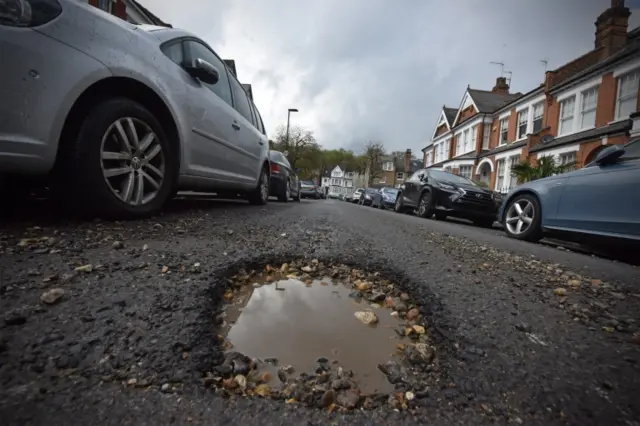Will the Tories fix every pothole?published at 17:48 GMT 24 November 2019
 Reality Check
Reality Check

The Conservatives are promising the “largest ever pothole fixing programme”. They plan to allocate £500m a year for four years to fixing holes in the road.
So will that fix every hole?
According to the Asphalt Industry Association’s latest survey, nearly two million potholes were filled last year in England and Wales, at a cost of just under £100m. That’s about £50 a pothole.
Local authorities were able to fill over 300,000 more potholes than the previous year, though the sum spent barely rose.
That’s because councils are trying, a bit more, to fill in potholes as part of planned repairs, rather than patching them up on an ad-hoc basis.
Potholes are just one, very visible form of road surface degradation, all of which contribute to accidents and damage to vehicles.
How much would it cost to repair every road completely? Clearing the maintenance backlog on the whole road network would cost £9bn for England’s roads, plus £800m for Wales, according to the AIA.